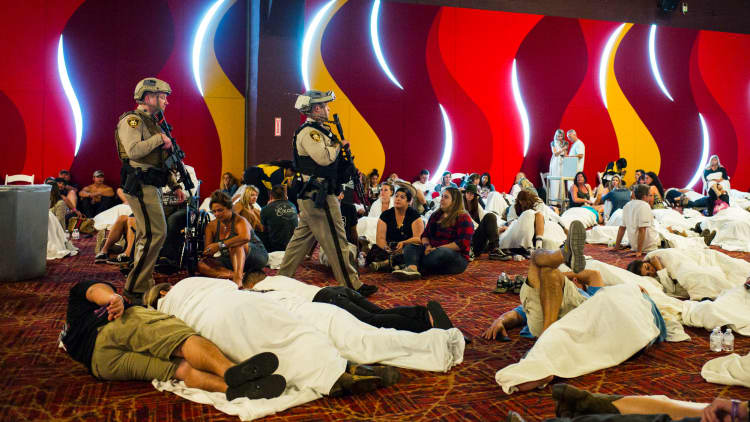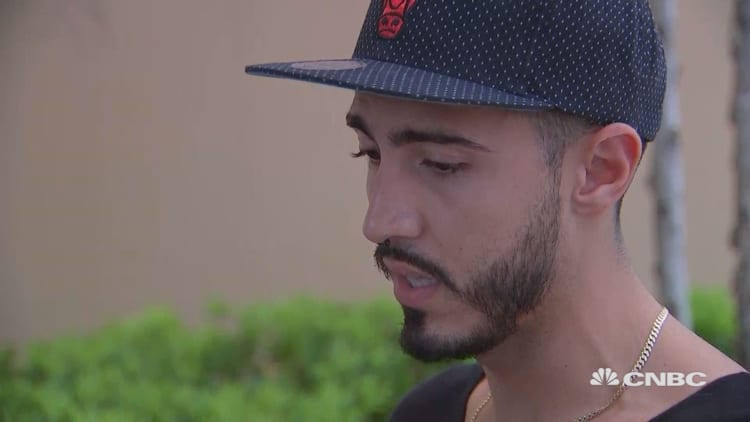There's a terrible rhythm to a mass shooting, and we all experience it together. The first reports. Conflicting information. Death tolls rising, inexorably rising.
But for the families of the people caught up in the violence, there's an even more awful togetherness.
They get word that their loved one was at the scene, they scramble for information and then they make their way to a central gathering point set up by law enforcement for family reunification. But not every family can be reunified.
Families in Las Vegas are going through that horror today.
In the wake of the shooting at the Pulse nightclub in Orlando, Florida, last year, I witnessed that moment at a Hampton Inn not far from the club where 49 people had been slaughtered by an ISIS-inspired killer.

I was covering the story for CNBC, and I made my way to the Hampton Inn that was the central gathering location just as law enforcement began notifying families of the names of those who had been killed.
It was the worst thing I've ever witnessed.
Authorities did everything right – they brought in priests, ministers and grief counselors. Mostly what they did at first was hold on to people to keep them from collapsing to the floor.
As a reporter, your instinct is to just keep reporting, ask questions, gather information, get the story. But there were no questions I could ask these people.
Hundreds of strangers brought together to find that their sons — the victims were mostly men in their 20s — had been cut down in the prime of life. That was the cruel reality. People were shouting "No, no!" There were scenes of shock, denial, anger. There weren't enough grief counselors to keep everyone from collapsing to the floor. So much grief in one place.
Hotel employees gathered the families in a central lobby and walked through the crowd offering water, pillows and a helping hand. But there was really no way to help. No way to bring these men back to life, to undo what had just been done.
I remember it was a brutally hot day, and people gradually made their way to the parking lot, shielding themselves from the sun. The moment that had brought them together now sent them back into the world to deal with their pain on their own. There were more family members to call, funerals to arrange.
That afternoon at the Hampton Inn was just one incident. These shootings keep happening. Their deadly rhythm does not stop. And each time it happens, I think of the families who can't be reunified, brought together by police, hospital workers and county bureaucrats into some generic venue — a convention center, a business hotel — and given the news. The awful shock. The searing permanence of their loss.
As often as this happens now, I don't suspect that authorities are getting any better at it. I don't suspect it is the kind of thing anyone can get much better at.
WATCH: Eyewitness account of Pulse nightclub shooting



